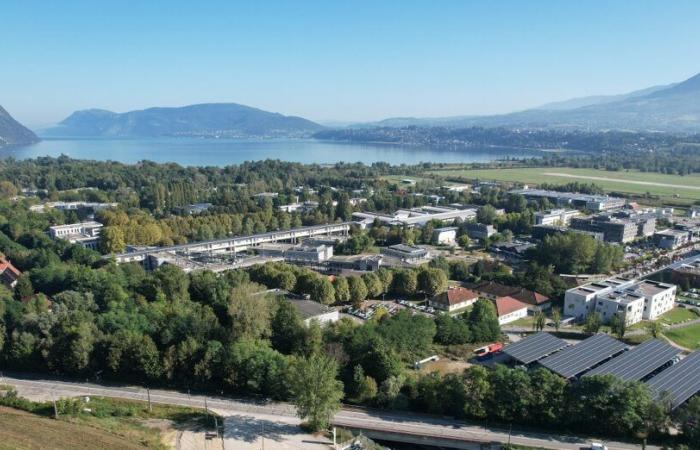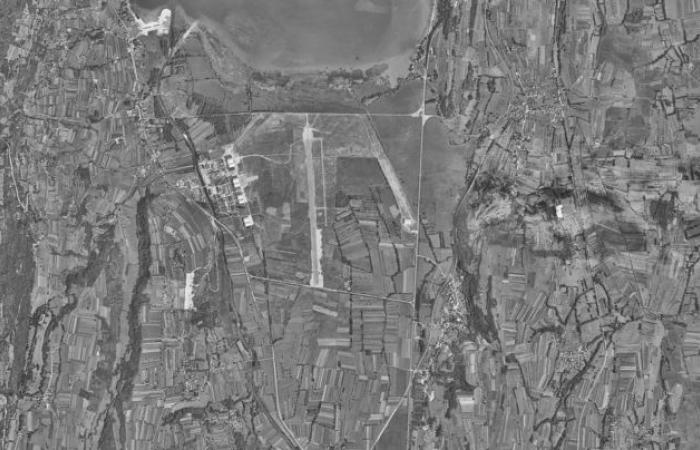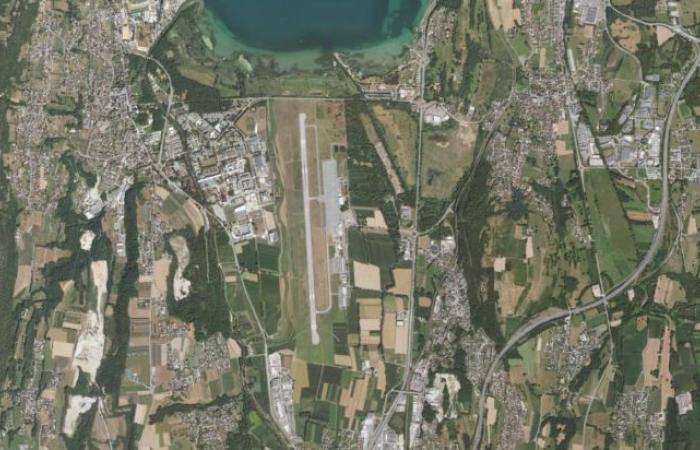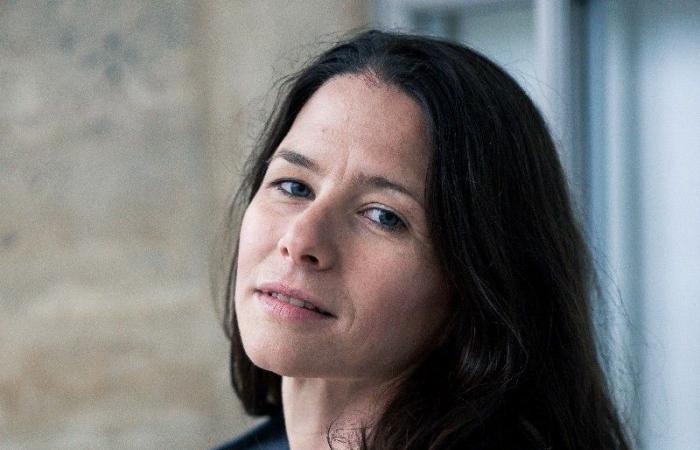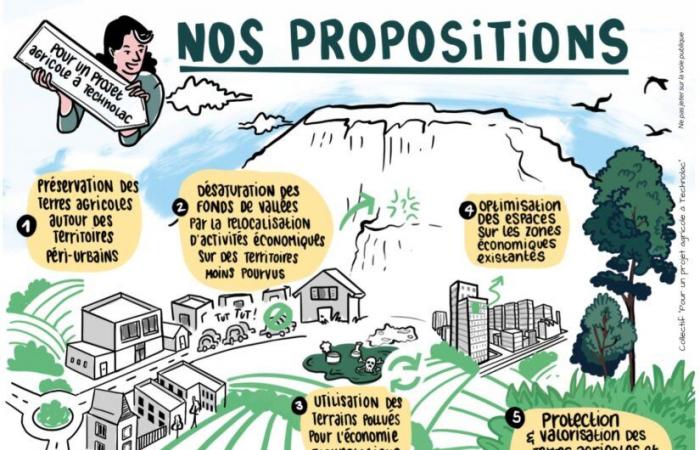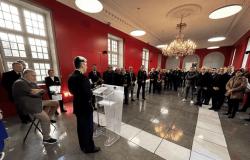In Chambéry, while a project to extend the activity zone Savoie Technolac was validated by the prefect at the beginning of July, local farmers are stepping up to the plate. They are worried about the future of their fertile lands, which this urbanization threatens. And remind us of the urgency of food autonomy which is struggling to reach 2% in the region.
The ax has fallen: the public inquiry resulted in a favorable opinion. The extension of Technolac will take place. On the outskirts of Chambéry, not far from Lake Bourget, in Savoie, an agricultural area of 21.5 hectares is about to become the third extension of an activity center. A desire to Chambéry-Grand Lac Economy (CGLE), a major player in local economic development. CGLE « guarantees businesses the essential conditions for their success: an optimal location 45 minutes from two international airports, the presence of sectors of excellence, a land and real estate offer […] “, we read on their website. The project Technolac 3 goes in this direction: allowing the development of companies already established in the valley.
But among the farmers working on these twenty hectares, morale is not good.
Concreting agricultural land very rich » ?
« It is a question of concreting very rich agricultural land. The latest available in the area », Presents Quentin Degrange, a farmer in his thirties. Already purchased by Chambéry-Grand Lac Economie, the land is now used by farmers – but for how much longer? Because despite a majority of contrary opinions and the creation of a collective for an alternative agricultural project, last July, the investigating commissioner gave a favorable opinion to the project. Opponents of Concerted Development Zone 3 (ZAC 3) are therefore disappointed.
« As a farmer who has just taken over the family farm, I see several black spots there.continue Quentin Degrange. The loss of land is significant because land pressure is very high. It's super difficult to find flat land, especially with the agronomic quality there is on Technolac. » For example, corn does not need to be watered because the land is so humid – even in times of drought. A major asset for farmers. “ I have a problem with such good land being taken for parking lots or buildings. »
Preserve these lands and feed the population
Elsa Sidawy is also impacted by this land crisis. A market gardener, she has been looking for land in the area to settle in for three years. “ And I'm not close to finding », she regrets with a tight smile. Attached to this region, it campaigns for the development of agricultural activities in place of the extension of this ZAC adjoining Chambéry airport. The market gardener is thus part of the Collective for an agricultural project in Technolaccreated in 2021. « Our first objective is to preserve these lands. Even though there are other economic issues in the project, this land checks all the boxes for agriculture, so there shouldn't even be a debate. »
Born from a reflection on food and agriculture in Greater Chambéry, this citizen collective wishes to involve local farmers in a virtuous activity for the region. And able to feed the population. The hard core met with representatives of CGLE. “ To discuss. Clearly, they asked us what we wanted to keep our mouths shutcomments Elsa Sidawy bitterly. What did a market gardener or a breeder need to live? Then these exchanges remained a dead letter. There was a public inquiry with almost 700 contributions, 95% against the ZAC 3 project. »
♦ (Re)read: How to prepare our food for tomorrow?
“We are at 2% food autonomy in greater Chambéry”
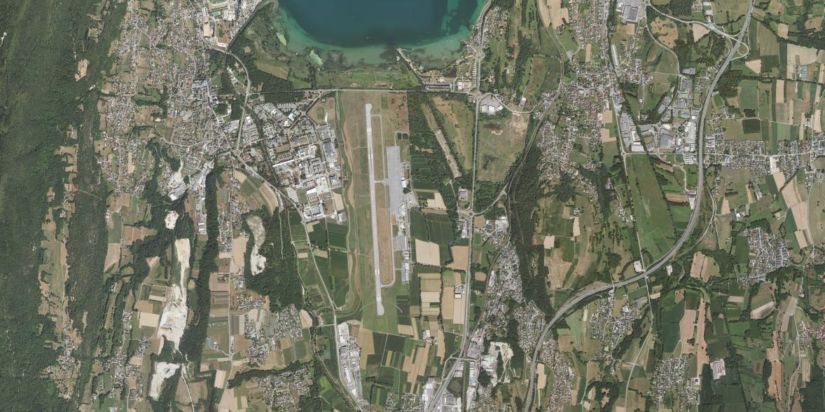
The collective also criticizes the mayor of the adjoining town, La Motte-Servolex, for using double talk: “ He sets up a farm to supply the central canteen of La Motte in local productspresents the market gardener. It's virtuous, it's great and it's good for sustainable development. But that other agricultural hectares could disappear, that does not worry him. It's lunar. Especially since there is an agricultural high school in the town. »
Quentin Degrange and Elsa Sidawy are revolted. And lost. They believe that pouring concrete on these lands is heresy. They ensure that perpetuating these lands and ensuring successions to meet the needs of residents is a fairer solution. “ The enormous consumption base that we have is not satisfied locally. We are at 2% food autonomy in Grand Chambéry. We are completely dependent on inputs. This goes against the grain of the desire for food independence that communities of municipalities are talking about. », via Elsa Sidawy.
Develop businesses or preserve agricultural land?
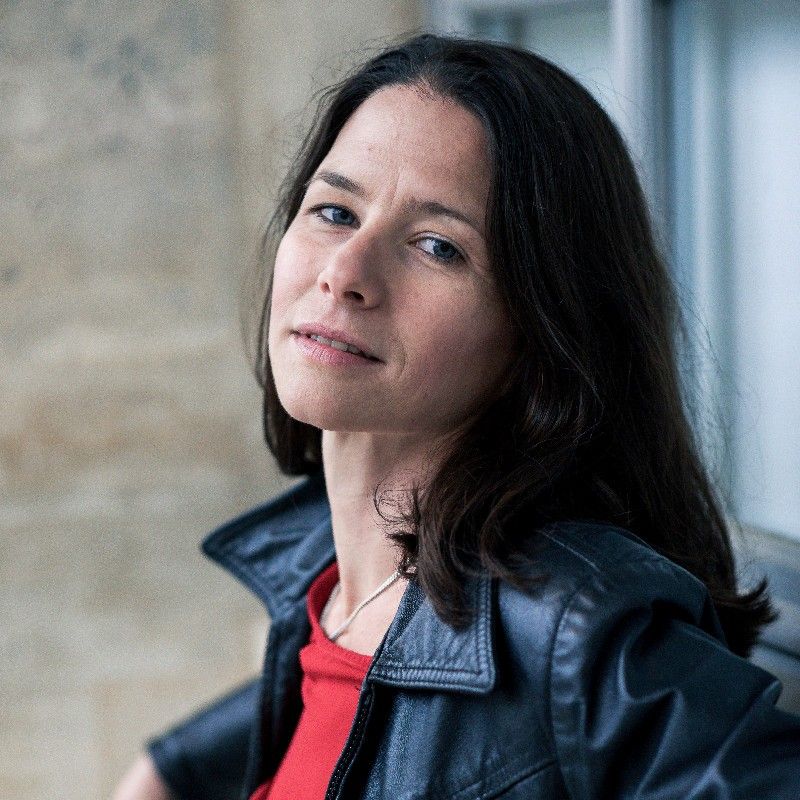
On the CGLE side, we logically plead for the development of these technological innovation zones. Savoie Technolac has brought together for forty years a significant ecosystem of companies, coupled with research and higher education centers such as the EDF Hydraulic Engineering Center, theINES CEA and Savoie Mont-Blanc University. Expanding their workspaces would benefit “ making energy an economic development issue ”, in their words.
The company Ataweyspecializing in hydrogen recharging stations, would set up there. “ A local gem according to the mayor, but the other areas of Technolac are filled with empty officesassure Elsa Sidawy. Why artificialize a new one? Rather fill the existing one! » So, between welcoming local businesses in innovation and energy or preserving agricultural land, what to do?
♦ Read also: A pioneering campus in urban agriculture
“We are invisible”
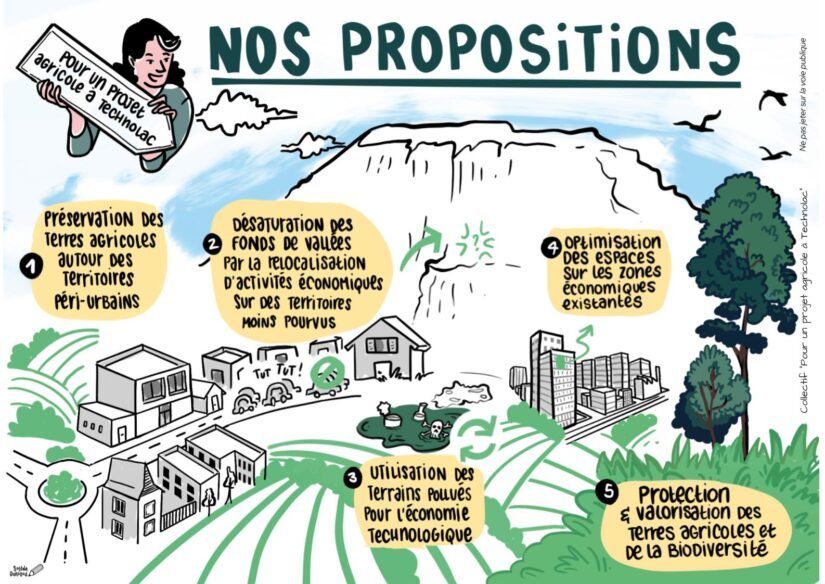
Quentin Degrange regrets not being included in the reflection of the project. “ We want to be able to think with them, find common ground. Last spring, we sent letters countersigned by all operating farmers to the Chamber of Agriculture, the communities of municipalities and the prefect. The mayor deigned to receive us, but to explain to us that our vision of the project was really not feasible. », he describes. The market gardener is reassured by the conclusion of the investigating commissioner who suggests that elected officials “ think about the agricultural project in this area. And to see with the farmers on site. So us! I sent back emails to (re)make contact. Zero response so far. We are invisible. »
By also putting the law of Zero net artificialization (I will) on the table, the collective of Elsa and Quentin hopes to postpone the start of the work until the next municipal elections in Chambéry in 2026. A community council of Greater Chambéry is planned for December 19. To be continued. ♦

